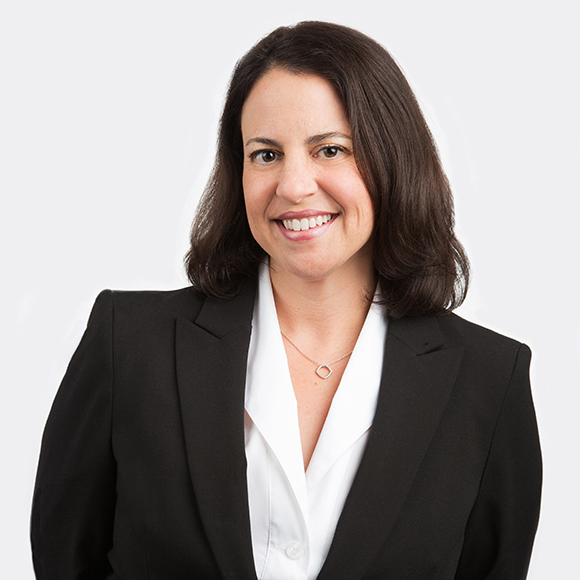California Supreme Court Holds Landowner Not Liable for Obvious Danger it Does Not and Cannot Control

A landowner’s liability to its invitees hinges on whether or not a duty is imposed by law. But, mere ownership of property does not automatically equate to liability. Rather, in Vasilenko v. Grace Family Church (2017) 3 Cal.5th 1077, the California Supreme Court recently declined to find a landowner owed a duty to protect invitees from obvious dangers presented by crossing a public street. In reaching its decision, California’s highest court reversed the decision of the Court of Appeal and found that a church, which did nothing more than site and maintain a parking lot requiring its invitees to cross a public street, owed no duty to protect its invitees from the obvious dangers presented by the public street. The Vasilenko decision is critical for premises liability matters in that it defines and constricts the extent of a duty that is owed by a landowner to its invitees in similar circumstances.
Facts
Plaintiff Aleksandr Vasilenko (“plaintiff”) was struck by a car while crossing a public street from defendant Grace Family Church’s (“church”) overflow parking area to the main premises of the church. Plaintiff was injured and he and his wife sued the church for negligence and loss of consortium, contending that the church owed him a duty of care to assist him in crossing the public street. The church filed a motion for summary judgment on the ground that it did not owe a duty to the plaintiff because the church did not own, possess or control the public street at issue. Summary judgment was granted in favor of the church and the plaintiff appealed. The California Court of Appeal reversed the decision, but the California Supreme Court recently disagreed and found that no duty was owed by the church to prevent the plaintiff’s injuries.
Analysis
Generally, each person has a duty to exercise, in his or her activities, reasonable care for the safety of others. Historically, courts have utilized the concept of duty to limit the infinite liability that might flow from every negligent act. A duty is to be created only where “clearly supported by public policy.” In California, whether or not to impose a duty is measured by evaluation of several foreseeability and public policy factors outlined in Rowland v. Christian, (1968) 69 Cal.2d 108. Those factors are: “the foreseeability of harm to the plaintiff, the degree of certainty that the plaintiff suffered injury, the closeness of the connection between the defendant’s conduct and the injury suffered, the moral blame attached to the defendant’s conduct, the policy of preventing future harm, the extent of the burden to the defendant and consequences to the community of imposing a duty to exercise care with resulting liability for breach, and the availability, cost and prevalence of insurance for the risk involved.” This is traditionally a question of law for the Court because a finding that there is no duty represents a decision by the Court that there is an exception to the general rule that each person has a duty to act with reasonable care for the safety of others.
In Vasilenko, the Court examined whether an exception to the general rule that a landowner owes a duty to its invitees exists where the landowner sites and maintains a parking lot, which causes its invitees to cross a public street. The decision was in light of the known and obvious dangers presented by crossing a public street and the fact that the church increased the likelihood that its invitees would encounter danger because they had to encounter the danger of crossing the public street. Can subjecting an invitee to such increased exposure to danger be exempted from the general duty of care owed to invitees? The California Supreme Court now says “yes.”
In looking at the Rowland factors, the Vasilenko Court found that the first two factors support imposition of a duty—i.e., it was foreseeable that the plaintiff could be struck by a car when crossing the street and it is certain that plaintiff suffered injury. However, the Vasilenko Court found the third Rowland factor—closeness of the connection between the defendant’s conduct and the injury suffered—did not weigh in favor of finding a duty. The reason was simple—without facts and evidence to demonstrate “the landowner impaired the driver’s ability to see and react to crossing pedestrians, the driver’s conduct is independent of the landowner’s.” In addition, the invitees decision as to when, where and how to cross the street was independent of the landowner absent facts and evidence that the landowner somehow impaired the invitee’s ability to see and react to passing motorists. The Court looked further at the public policy factors to reach its ultimate decision that no duty was owed by the church to the plaintiff.
Specifically, the church had limited ability to control the public street or the movement of traffic. Moreover, the danger of crossing the street is obvious and there is no duty to warn of obvious dangers. With respect to the parking lot chosen by the church, because there are numerous factors that may weigh in favor of and against the location of the lot, it is not obvious how to determine whether a safer lot was available. This would place a difficult burden on the landowner to “reliably predict which parking lot might be considered a safer available alternative.” The Court went on to find that drivers and invitees can exercise greater care to prevent future harm than landowners, and the burden on landowners in monitoring the dangers of the public street were too high. These latter factors weighed against finding a duty. As for the moral blame factor, the Court found landowners have limited ability to reduce the danger and generally exercise no greater control over the danger than the invitees who cross the street. As for availability of insurance, in light of the insurance available to drivers, to invitees (uninsured or underinsured motorist coverage) and to landowners, that factor did not weigh for or against imposition of a duty.
The Court evaluated the Rowland factors with varied results. However, the Court found the “policy of preventing future harm looms particularly large.” The Court reasoned that the comparative ability of a landowner to take steps to reduce the risk to its invitees as compared with the ability of both invitees and drivers to prevent injury tipped the scale against finding a duty on behalf of the landowner. Furthermore, imposing a duty on the landowner, or the church in this case, would discourage the landowner from designating parking, which itself carried many benefits to the invitees. The Court also did not ignore a key factual distinction in Vasilenko as compared with other authorities addressing similar issues—there were no facts suggesting the church created a danger beyond that presented by the public street itself. While the plaintiff argued on appeal that the church voluntarily assumed a duty to assist him, the Court found that issue was not presented in the trial court, but may be considered by the Court of Appeal on remand if the plaintiff elected to pursue the theory. It appears this latter issue leaves the determination of the existence of a duty slightly open if there are facts alleging, and evidence supporting, the argument that the church assumed a duty by maintaining a parking lot across the street which required its invitees to cross a public street.
Learning Points: In the well-reasoned Vasilenko opinion, the California Supreme Court carefully evaluated the foreseeability and public policy considerations that must be taken into account in deciding whether to impose a duty on a landowner to protect its invitees from injury presented by the obvious danger of crossing a public street to access its premises. Beyond just street crossing situations, this decision is particularly significant where an invitee plaintiff seeks to recover damages for alleged negligence of a landowner when the injury producing event was not only obvious, but caused by the actions of the invitee himself or a third party. For defendant landowners, the Vasilenko decision weighs in favor of pursuing summary judgment on the issue of duty where obvious dangers are present and outside the control of the landowner. As a matter of public policy, because landowners are not insurers of public safety, an exception to the general rule of duty is not only logical, it is now backed by California precedent.
 Private: Meredith D. Stewart
Private: Meredith D. Stewart